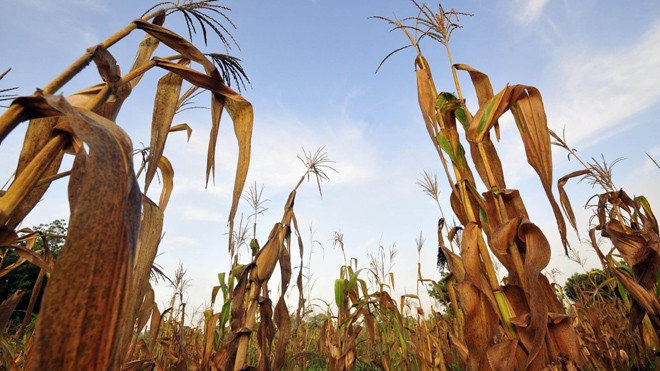
There is a huge impact of climate change on agriculture; it will get even worse if we do not act

Manifestations of climate change are already affecting our agriculture. Reduced water availability at one time and floods on the other, as well as the projected increase in temperature, add to the challenge. These factors are set to not only affect the growth of agriculture output but also alter our entire crop patterns. Various research studies on effects of climate change have pointed this out.
What could be steps to reduce the impact of climate change on agriculture? Are we ready to cope with the looming crisis?
Dr Abid Qaiyum Suleri, Executive Director Sustainable Development Policy Institute (SDPI), and an expert on climate change issues, focuses on the centrality of water in matters of climate change and agriculture. "Climate change is all about water, too much water in a short period of time or too little water for an extended period. Both extremes have direct negative implications on agriculture. Too much unmanageable water (floods) has been causing havoc in Pakistan since 2010. Scarcity of water, on the other hand, is leading to crop failure and food insecurity."
Dr Suleri explains, "Rise in temperature, the second manifestation of climate change may bring some additional acreage in our northern areas. However, for most of the area which is arid and semi arid, rise in temperature means conditions beyond the optimum requirement of temperature and humidity. This would again lead to low yield and deteriorated quality of output."
Reduced water availability is another factor that is going to alter our crop patters and production. "Reduced water availability is altering the crop rotation and cropping patterns. There is drastic reduction in cereal production, e.g, wheat and rice, as well as in cotton and sugarcane," according to a study conducted by IUCN, titled, Climate Change, Vulnerabilities in Agriculture in Pakistan. "In southern Pakistan, yields of major cereals are predicted to decline by 15-20 per cent," it adds.
Livestock production is also going to be affected considerably, "Livestock production is predicted to decline by 20-30 per cent, creating crises of milk, meat and poultry supplies and pushing prices beyond reach of the average Pakistani."
Unless climate change trends are reversed, "agriculture will be the most seriously impacted sector," it adds. The document suggests that "Producing water-consuming crops like sugarcane under a climate change scenario may no longer be feasible."
Pakistan, it is argued in the document, needs to put in place immediate adaptation measures directed at its agriculture sector "that will help stabilise its agricultural growth rate at around 5 per cent above the population growth rate of 2.4 per cent."
Suleri suggests ways to minimise the impact of climate change on agriculture, "Without an integrated institutional framework and horizontal-vertical linkages between federal and provincial governments and among provincial departments, we’ll not be able to tackle climate change."
On agriculture, he says, "In case of agriculture, it would also require a coordinated collaboration among agricultural universities, agricultural research institutions, and agricultural extension and district management. The four, unfortunately, are working in silos, turning our agriculture sector vulnerable to climate change."